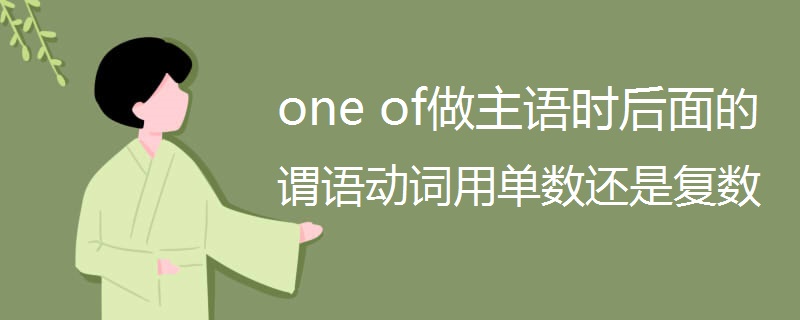-
-
one of结构作主语,一般情况下,谓语动词都是用单数。但是如果这个结构用作定语从句的先行词,从句谓语动词用复数。但如果前有the only、the very等修饰时,谓语动词用单数。

one of的用法
一、当 one of 在句首时,谓语动词用单数。
例如:
1、Oneof the gangsters was caught by the police.
歹徒之一被警察逮捕。
2、Oneof the apples has gone bad.
苹果中有一个坏了。
二、one of +最高级+名词复数
例如:
1、Norman Bethune is oneof China’s most famous heroes, but he wasn’t Chinese―he was Canadian.
诺尔曼?白求恩是中国最著名的英雄之一,但他不是中国人,他是加拿大人。 这里 most 之前有 China's 这样的限定语了,就不要 the 了。the,a 与 this,that 与 my,your 这三类限定词, 只能用一个, 不能同时用。
2、This is oneof the best televisions on the market.
这是目前销售的品种最好的电视机之一。
三、one of 后面直接加可数名词复数
例如:
1、She is oneof those vain people who never take others' advice.
她属于那种自负得从不听别人劝告的人。
2、Oneof the gangsters was caught by the police.
歹徒之一被警察逮捕。
one of例句
I bought one of the leading brands.
我买了几个畅销品牌中的一种。
I heard a playback of one of the tapes.
我听到了其中一盘录音带的回放。
I had made arrangements for my affairs to be dealt with by one of my children
我已经安排我的一个孩子处理我的事务。
One of the bags was lost en route.
其中一个包在途中丢失了。
I think that is one of the major ingredients in his success.
我认为那是他成功的主要因素之一。